New Jersey Chemical and Ethics 24 PDH Discount Package 2
Courses in this Package
An Introduction to Domestic Water Treatment (C02-054)
An Introduction to Makeup Water for Industrial Water Systems (H03-006)
An Introduction to Water Desalination (H04-002)
Building Field Capabilities to Respond to Drinking Water Contamination (H03-009)
An Introduction to Pretreatment Considerations for Water Desalination (H02-006)
Disinfection with Peroxone (H02-010)
Principles of Water Treatment (H03-002)
Reactor Water Chemistry (H03-001)
Ethics in Professional Practice (LE2-007)
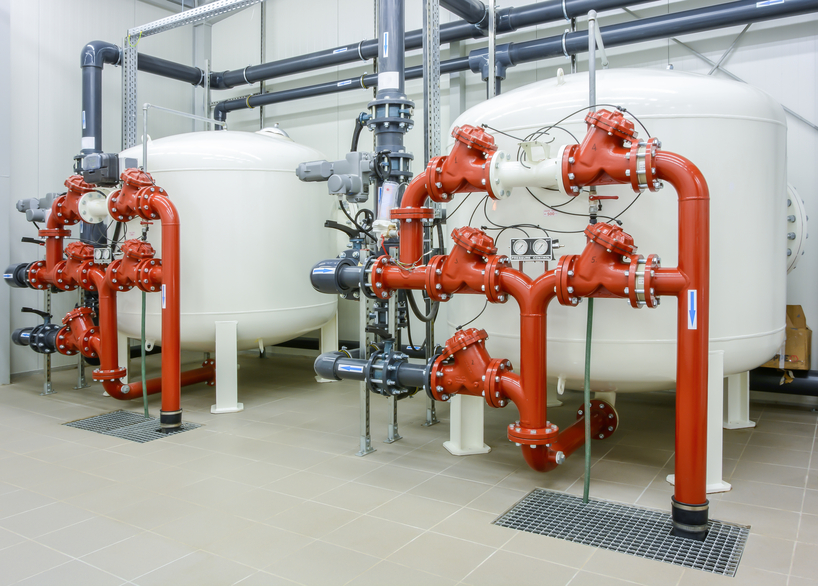
This online engineering PDH course provides an introduction to domestic water treatment. It includes basic information on most of the common water treatment processes for treating domestic water supplies to meet regulatory and best practices requirements.
Treatment consists of adding and/or removing substances from water so as to bring about a desired change in quality. In general, treatment is provided to protect public health or to improve the acceptability (aesthetic quality) of the finished product.
This 2 PDH online course is intended for civil and environmental engineers and other design and construction professionals seeking an introduction to domestic water treatment.
This PE continuing education course is intended to provide you with the following specific knowledge and skills:
- Learning about the methods of water treatment at the source
- Learning about coagulation and flocculation treatment
- Understanding the fundamentals of sedimentation basins and clarifiers
- Learning about disinfection issues
- Understanding the importance of corrosion and scaling control
- Knowing how to control iron and manganese
- Learning about ion exchange processes
In this professional engineering CEU course, you need to review the course document titled, "An Introduction to Domestic Water Treatment".
Upon successful completion of the quiz, print your Certificate of Completion instantly. (Note: if you are paying by check or money order, you will be able to print it after we receive your payment.) For your convenience, we will also email it to you. Please note that you can log in to your account at any time to access and print your Certificate of Completion.
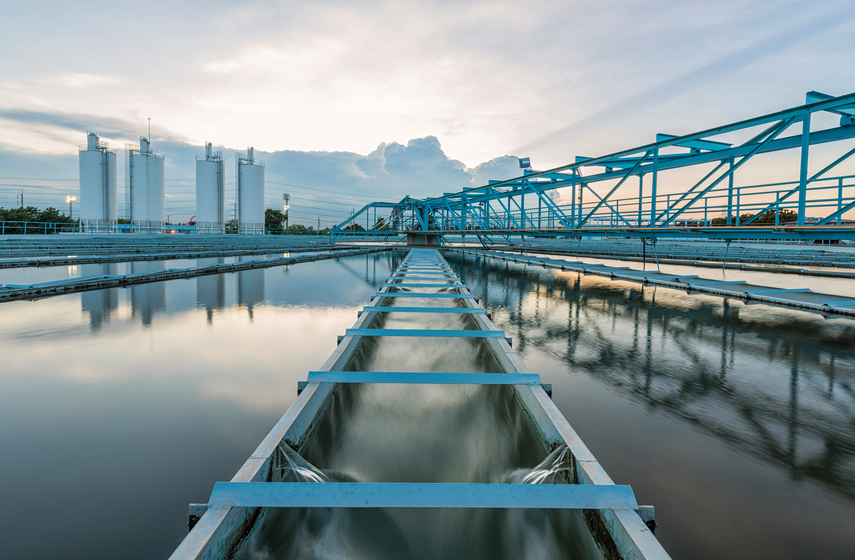
This online engineering PDH course provides an introduction to the techniques and methods for treating makeup water used in industrial water systems.
Many installations use fresh water and, often, potable water. Makeup water, often referred to as "makeup," is fresh water that is added to an industrial water system to replace water lost by blowdown, evaporation, wind drift, leaks, steam, humidification, or withdrawal from these systems. The usual source of makeup water is the installation's potable water supply. This source is water that has been conditioned and is usually of a very uniform quality from day to day. Other sources of makeup water could include groundwater obtained from shallow or deep wells, or surface water from streams or holding ponds. These sources are not treated to the extent that the potable water source is treated. Still another source is reuse water (i.e., water that is "used" and reclaimed and not rated as potable).
This 3 PDH online course is intended for mechanical engineers, civil engineers and other design and construction professionals seeking an introduction to makeup water and makeup water treatment for industrial water systems.
This PE continuing education course is intended to provide you with the following specific knowledge and skills:
-
Learning about different sources of makeup water
-
Understanding the reasons for treating makeup water
-
Knowing the criteria for treating makeup water for high temperature hot water systems
-
Learning about the methods for the removal or reduction of calcium and magnesium impurities from makeup water
-
Understanding how aeration is employed to remove dissolved iron
-
Understanding how to remove dissolved gases such as carbon dioxide, hydrogen sulfide and methane
In this professional engineering CEU course, you need to review the course document titled, "An Introduction to Makeup Water for Industrial Water Systems".
Upon successful completion of the quiz, print your Certificate of Completion instantly. (Note: if you are paying by check or money order, you will be able to print it after we receive your payment.) For your convenience, we will also email it to you. Please note that you can log in to your account at any time to access and print your Certificate of Completion.
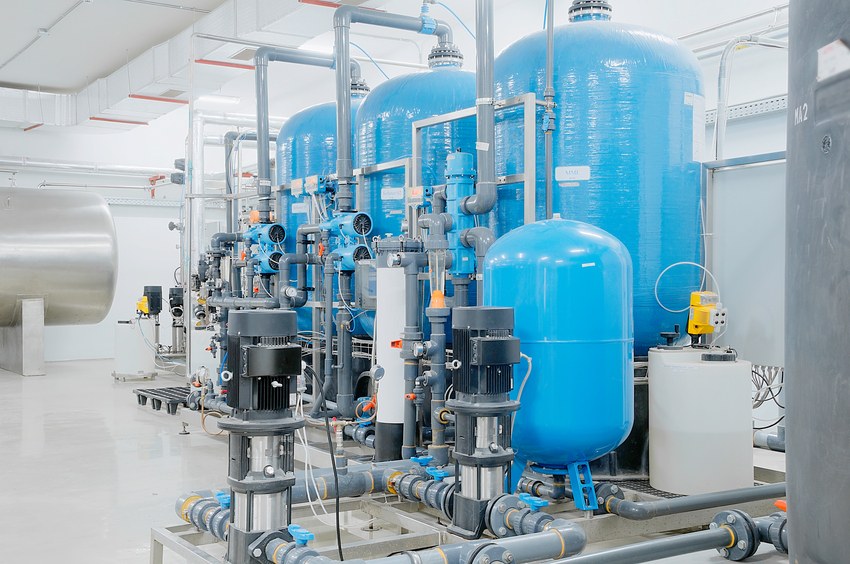
This online engineering PDH course will introduce you to water desalination technologies, processes and methods. You will learn the importance of site and water source selection. You will be introduced to an approach for selecting the appropriate desalination technology and process. You will learn about distillation/condensation techniques, membrane techniques and ion exchange techniques. You will find out how to develop process concepts, evaluate their utility, and move forward into preliminary design for projects and sites where water desalination is an operational requirement.
This 4 PDH online course is intended for engineers and other design and construction professionals interested in gaining an understanding of the technologies, processes and techniques for treating saline water, such as from the sea, to provide potable or suitable process water to meet the operational requirements of facilities and activities.
This PE continuing education course is intended to provide you with the following specific knowledge and skills:
- Learning about water storage and system modularization
- Learning about the typical desalination flowsheet
- Learning about typical reverse osmosis desalination processes
- Learning about cellulose acetate and polyaromatic amide membranes and their use in membrane desalination processes
- Learning about electrodialysis reversal desalination technology
- Learning the importance of energy conservation and efficiency when evaluating desalination processes
- Learning about high temperature distillation/condensation techniques
- Learning how multiple effect evaporation units are applied
- Learning the characteristics of multistage flash-evaporation units
- Learning about low-temperature distillation processes and how to apply them
- Learning when to use vapor compression techniques in water desalination
- Learning about applications of a multistage flash distillation facility
- Learning about the importance of waste heat recovery evaporation process
- Learning the fundamentals of the vapor-compression vertical-tube distillation system
- Learning the principles of electrodialysis desalination
In this professional engineering CEU course, you need to review the course document titled, "An Introduction to Water Desalination".
Upon successful completion of the quiz, print your Certificate of Completion instantly. (Note: if you are paying by check or money order, you will be able to print it after we receive your payment.) For your convenience, we will also email it to you. Please note that you can log in to your account at any time to access and print your Certificate of Completion.

This online engineering PDH course provides guidance on building field capabilities in order to respond to the contamination of drinking water. The course also provides planning and implementation guidance, templates, customizable report forms, and other documentation for Sampling and Analysis (S&A) activities.
When performed in response to possible or credible drinking water contamination, the goal of Sampling and Analysis (S&A) is to confirm or rule out contamination through field and laboratory testing. It is one of the earliest utility-led activities initiated when the utility has activated its drinking water contamination response plan and continues throughout remediation and recovery if contamination is confirmed.
This 3 PDH online course is intended for chemical and environmental engineers as well as others who are interested in learning more about building field capabilities in order to respond to the contamination of drinking water.
This PE continuing education course is intended to provide you with the following specific knowledge and skills:
- Familiarizing with planning and documentation for visual site hazard assessment, sample collection, and sample packaging and shipping
- Familiarizing with planning and documentation for site safety screening, rapid field testing, and hazardous materials packaging and shipping
- Understanding the staffing requirements to perform basic and advanced field activities
- Taking into consideration field response health and safety
- Familiarizing with quality assurance and quality control
- Understanding emergency response procedures
- Familiarizing with the considerations for preparation, placement, and contents of emergency response sampling and analysis kits
Upon successful completion of the quiz, print your Certificate of Completion instantly. (Note: if you are paying by check or money order, you will be able to print it after we receive your payment.) For your convenience, we will also email it to you. Please note that you can log in to your account at any time to access and print your Certificate of Completion.

This online engineering PDH course will introduce you to pretreatment techniques, such as solids removal, chemical treatment, filtration, coagulation, pH adjustment, scale inhibition, degasification, deaeration, disinfection and ultraviolet irradiation, at desalination plants.
Water desalination systems may employ different technologies depending on a variety of technical and economic factors. To one degree or another, these technologies may require pretreatment of the feed water stream in order to produce potable water that is healthy and has a pleasant taste.
This 2 PDH online course is intended for mechanical engineers, civil engineers, electrical engineers and other design and construction professionals wanting an introduction to source water pretreatment considerations for water desalination plants. After completion of this course you will be prepared for advanced learning about water desalination to prepare you for desalination project planning and design.
This PE continuing education course is intended to provide you with the following specific knowledge and skills:
- Understanding the principle technologies of water desalination
- Learning about the need for the pretreatment of source water at desalination plants
- Learning about the techniques for solids removal
- Learning about chemical pretreatment processes
- Learning about filtration and coagulation techniques
- Learning about the methods for scale inhibition
- Learning about disinfection using ultraviolet irradiation
In this professional engineering CEU course, you need to review the course document titled, "An Introduction to Pretreatment Considerations for Water Desalination".
Upon successful completion of the quiz, print your Certificate of Completion instantly. (Note: if you are paying by check or money order, you will be able to print it after we receive your payment.) For your convenience, we will also email it to you. Please note that you can log in to your account at any time to access and print your Certificate of Completion.
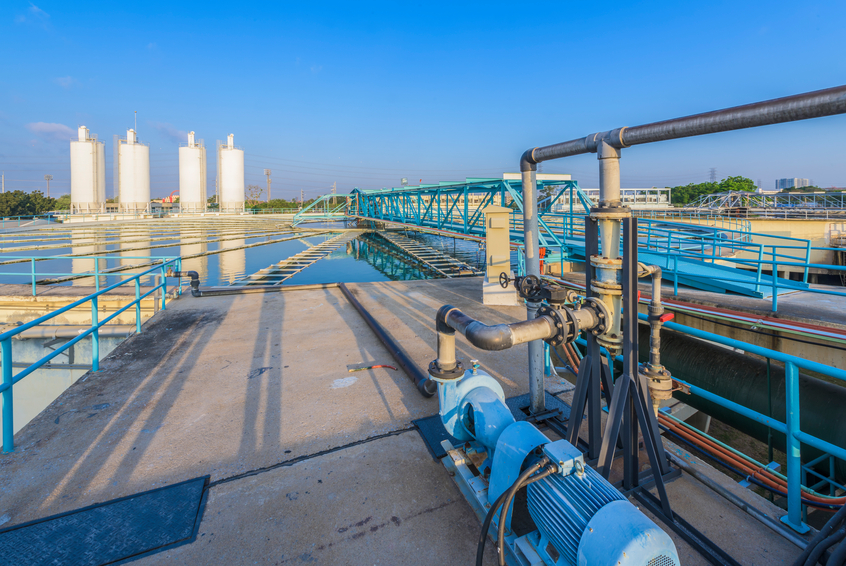
This online engineering PDH course provides guidance on the use of this rapid, strongly oxidizing process.
Addition of hydrogen peroxide to ozonated water increases the rate of ozone decomposition and generates hydroxyl free radicals in what is known as the peroxone advanced oxidation process.
This 2 PDH online course is intended for civil, environmental, and chemical engineers who are interested in gaining knowledge about the use of the ozone/hydrogen peroxide combination known as peroxone for disinfection and oxidation. However, this course could appeal to engineers of other disciplines as well.
This PE continuing education course is intended to provide you with the following specific knowledge and skills:
- Understanding the chemistry of the peroxone disinfection/oxidation process
- Learning the similarities and differences between the molecular ozone and peroxone processes
- Familiarizing with general guidelines for the application of the peroxone process
- Understanding the advantages and disadvantages of peroxone use in comparison with other disinfection/oxidation processes
In this professional engineering CEU course, you need to review Chapter 7 titled, "Peroxone (Ozone/Hydrogen Peroxide)", which is part of the EPA Guidance Manual, "Alternative Disinfectants and Oxidants".
Upon successful completion of the quiz, print your Certificate of Completion instantly. (Note: if you are paying by check or money order, you will be able to print it after we receive your payment.) For your convenience, we will also email it to you. Please note that you can log in to your account at any time to access and print your Certificate of Completion.

This online engineering PDH course addresses the principles of ion exchange in the context of water purity. It also discusses typical water treatment methods and the basis for these methods.
Water treatment is necessary to remove the impurities that are contained in water as found in nature. Control or elimination of these impurities is necessary to combat corrosion, scale formation, and fouling of heat transfer surfaces throughout facility support systems.
This 3 PDH online course is applicable to chemical and environmental engineers, design and construction personnel, technical staff and facility operators who are interested in gaining a better understanding of the principles of water treatment.
This PE continuing education course is intended to provide you with the following specific knowledge and skills:
- Water treatment processes
- Dissolved gases
- Suspended solids
- pH control
- Water purity
In this professional engineering CEU course, you need to review Module 4, "Principles of Water Treatment" of the Department of Energy Publication DOE-HDBK-1015/1-93, "Chemistry".
Upon successful completion of the quiz, print your Certificate of Completion instantly. (Note: if you are paying by check or money order, you will be able to print it after we receive your payment.) For your convenience, we will also email it to you. Please note that you can log in to your account at any time to access and print your Certificate of Completion.
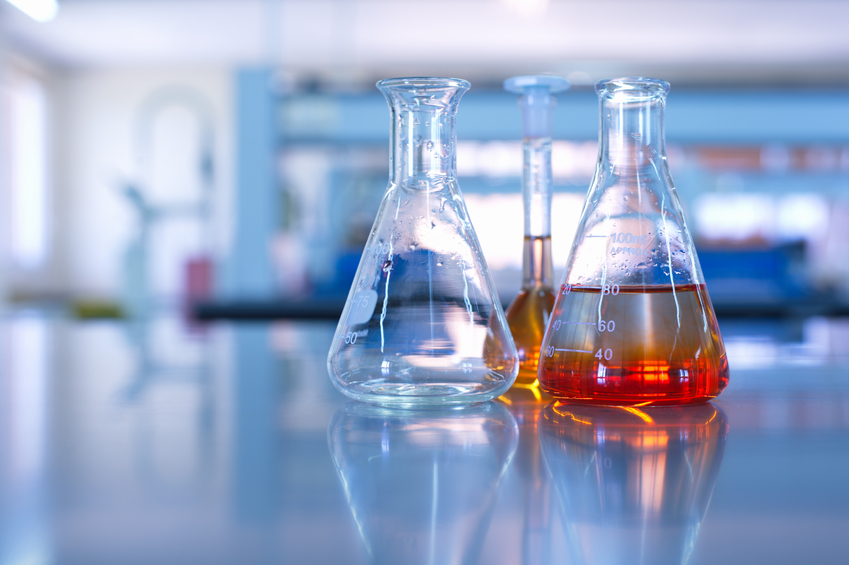
This online engineering PDH course describes the chemical measures taken to retard the corrosion often found in water systems. It also addresses the consequences of radioactivity on facility cooling water systems.
Radiation synthesis is a process that takes place in the reactor coolant system. This phenomenon is limited to the reactor coolant system because of the high flux (radiation) levels that exist in the core region and further complicate chemistry control of the reactor plant.
This 3 PDH online course is applicable to chemical engineers, design and construction personnel, technical staff and facility operators who are interested in gaining a better understanding of the reactor water chemistry.
This PE continuing education course is intended to provide you with the following specific knowledge and skills:
- Understanding water chemistry parameters
- Understanding the effects of radiation on water chemistry
In this professional engineering CEU course, you need to review Module 3, "Reactor Water Chemistry" of the Department of Energy Publication DOE-HDBK-1015/1-93, "Chemistry".
Upon successful completion of the quiz, print your Certificate of Completion instantly. (Note: if you are paying by check or money order, you will be able to print it after we receive your payment.) For your convenience, we will also email it to you. Please note that you can log in to your account at any time to access and print your Certificate of Completion.

In this online engineering PDH course, background on the philosophical models that guide ethical behavior is discussed and then applied to specific situations in engineering codes of ethics. This course is based on the American Society of Mechanical Engineers Professional Practice Curriculum, Volume 8, Section: Engineering Ethics.
Many engineering organizations have drafted codes of ethics to which their members are required to commit. Generally, these codes are quite similar and are based on a few fundamental principles which provide guidance to professional engineers in common situations. Nevertheless, there are many difficult or ambiguous situations in which the best ethical solution is difficult to determine.
This 2 PDH online course is intended primarily for engineers seeking to learn ethical principles and how to apply them to their professional practice.
This PE continuing education course is intended to provide you with the following specific knowledge and skills:
-
Determining ethical behavior using several philosophical models
-
Evaluating a practical situation in terms of a professional code of ethics
-
Identifying situations that represent conflicts of interest and formulate a proper response
-
Applying the standards of professional ethics in technical communication
-
Recognizing environmental impacts of engineering work
-
Considering principles of sustainable development in the performance of professional duties
In this professional engineering CEU course, you need to review "Ethics in Professional Practice" published by the American Society of Mechanical Engineers (ASME). (This course document is reproduced by permission of the ASME (www.asme.org). You may also download from or view this course document on the ASME's website by clicking on Ethics in Professional Practice).
Once you complete your course review, you need to take a multiple-choice quiz consisting of fifteen (15) questions to earn 2 PDH credit. The quiz will be based on this ASME publication.
Upon successful completion of the quiz, print your Certificate of Completion instantly. (Note: if you are paying by check or money order, you will be able to print it after we receive your payment.) For your convenience, we will also email it to you. Please note that you can log in to your account at any time to access and print your Certificate of Completion.